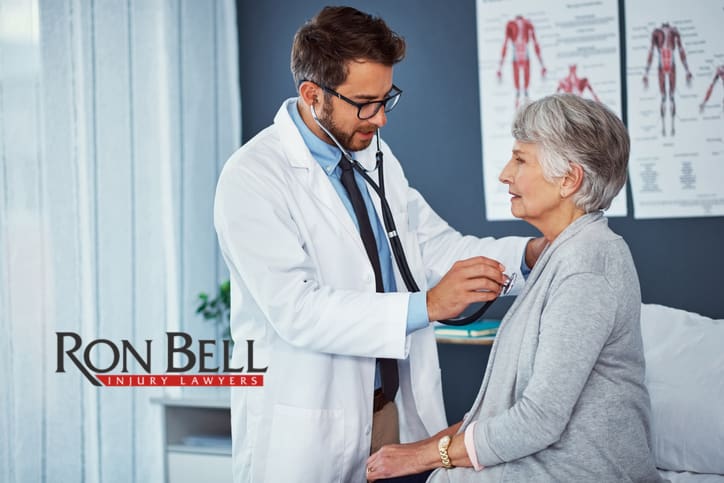
Stages of a Personal Injury Case in New Mexico – Part I: Seek Medical Attention
February 1, 2019
In this three-part series, we analyze the various stages of a typical personal injury case – from medical treatment to lawsuit. This first article discusses promptly seeking appropriate medical care. This important part of the process can play a big role, not only in the victim’s physical recovery but also for their chances of receiving fair compensation.
Under the U.S. tort law, a person who suffered physical or mental harm because of the intentional or negligent action of another party may be entitled to file a personal injury lawsuit against the person or organization deemed to be at fault. The purpose of such a lawsuit is primarily to obtain financial compensation for the injured person’s losses which may include medical bills, loss of income, pain and suffering, diminished quality of life and more. Secondly, a personal injury lawsuit offers the injured party an opportunity to have their grievances heard and considered before the court and by a jury of their peers. In the case of a favorable outcome, this can give a wronged person a much-needed sense of justice and closure.
Unfortunately, however, some who find themselves in a position to file a personal injury claim or lawsuit may be hesitant to do so. They may have become discouraged by one of the often-repeated myths about personal injury cases. Others simply don’t know what they can expect and the idea of being a party in a lawsuit may seem intimidating. And even though nowadays it seems like all the information we need is only a couple of clicks away, in an apparently infinite stream of websites, it often proves all too difficult to find a source you can trust.
For these reasons, in this three-part series, An experienced personal injury lawyer from our firm will provide trustworthy and concise information about the personal injury process in New Mexico. We hope that our overview of the stages of a personal injury case will help those who may have a valid claim to make an informed decision whether or not they should exercise their legal rights and take advantage of the protections the law offers to accident victims.
Step 1: Medical Treatment
After suffering extensive injuries in a serious accident, medical treatment is a necessity. However, some accident victims who suffer seemingly less serious or substantial injuries tend to procrastinate seeking medical care. Others never actually visit a doctor or receive any medical attention at all. Unfortunately, neglecting this issue is a mistake that can have negative results for both a person’s health and the outcome of his or her personal injury claim.
Obtaining medical treatment as soon as possible is recommended primarily for health reasons. Even if a person feels that the injuries sustained are minor, or if there are no obvious signs of serious harm, the victim may still have suffered trauma requiring urgent medical attention. One of our previous articles offers a more detailed look at the importance of seeking medical attention even in the case of seemingly trivial accidents or injuries.
However, refusing to see a doctor or even waiting too long to get treatment may also have negative consequences for the outcome of a personal injury claim. Without medical treatment, a person will have no medical records that are important during the personal injury process because they constitute important tangible evidence of the severity and scope of the injuries sustained. Without such evidence, the insurance company of the at-fault party, or the jury during a potential trial could conclude that the injuries were negligible and that any claims are unsubstantiated. The same argument can be made if a person waits too long before seeking treatment.
In the next article in this series, we will take a look at the next two steps in the personal injury process – choosing the right lawyer and the review of the injured party’s claim.
